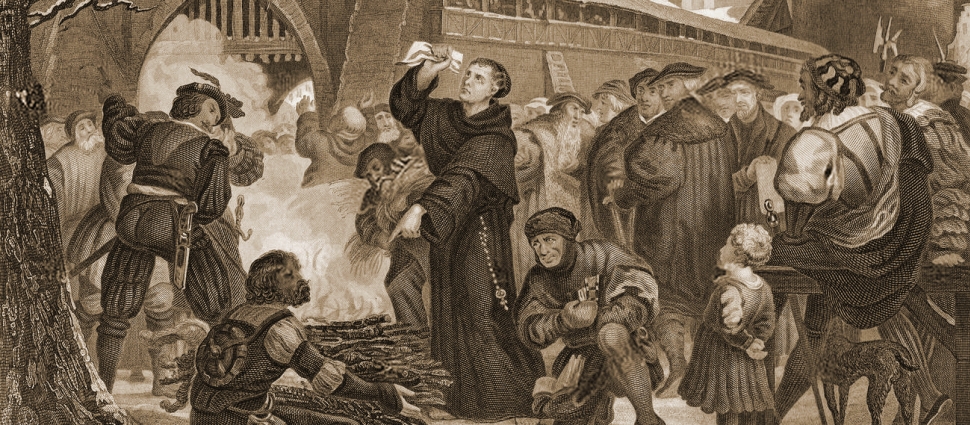Tuesday, March 31, 2020

Romans 11:33-36
Paul’s epistle to the Romans is the most complete single explanation of the gospel in the Bible. By the time we reach the end of chapter 11 we have read about the comprehensive nature and consequences of sin, the gospel as the vindication of God’s righteousness, the imputation of Adam’s sin and Christ’s righteousness, the substitutionary atonement of Christ, God’s sovereign election, the necessity of conversion, and sanctification. After writing such a wealth of glorious doctrine Paul ends chapter 11 with a doxology:
Oh, the depth of the riches and wisdom and knowledge of God! How unsearchable are his judgments and how inscrutable his ways.
“For who has known the mind of the Lord,
or who has been his counselor?”
“Or who has given a gift to him
that he might be repaid?”
For from him and through him and to him are all things. To him be glory forever. Amen. (vv. 33-36)
Paul begins his doxology with an acknowledgement of God’s fundamental “otherness.” That is, God is not like us to the extent that he is “inscrutable,” which means that he is beyond our understanding. Whatever we know about God we know because he has chosen to reveal it to us in his word and his works. Paul then asks three rhetorical questions: Who has known the mind of the Lord? Who has been his counselor? and Who has given him a gift that he might be repaid? These questions are meant, at least in part, to establish God’s radical independence. He is never in need of his creation. He does not exist in a give-and-take relationship with anything in creation.
God is entirely in and of himself. He owes nothing. He owns everything.
What follows, then, is a three-fold statement concerning the nature of God’s ownership of all things. God’s ownership can be understood as a cycle wherein all things come from God, are sustained through God, and will be returned to God. In this one doxological statement we are given a window into the purpose of all things. Nothing in all creation is excluded from this flow of Divine ownership.
The daily assessment of our lives ought to be that we are from God, through God, and to God. God is our Maker, our Source, and our Owner. From, through, and to describes how we live in relationship to our Lord.
It is clear from Paul’s description, that God’s ownership is dynamic rather than static. That is, there is movement to the way in which God owns. This distinguishes God’s kind of ownership from that which we see in the rest of creation. Remember, in verses 33-35 Paul has already established the otherness of God. This otherness is seen not only in God’s essence but in his acts, including his acts of ownership. The ownership of God over all things in creation is a life-giving movement out of which all things are from, through, and, ultimately, to Him.
And because God is eternally self-existing and self-sufficient, his way of owning is never leveraged to add to himself something that is missing. In other words, God’s way of ownership is expressed in lavish generosity. God’s ownership is animated in giving. Indeed, God is the great Giver. Everything we have comes from his hand. He withholds nothing from his children that they truly need.
John 3:16 – “For God so loved the world, that he gave his only begotten Son, that whoever believes in his should not perish but have eternal life.”
James 1:17 – “Every good gift and every perfect gift is from above, coming down from the Father of lights, with whom there is no variation or shadow due to change.”
Acts 17:24-25 – “The God who made the world and everything in it, being Lord of heaven and earth, does not live in temples made by man, nor is he served by human hands, as though he needed anything, since he himself gives to all mankind life and breath and everything.”
Romans 8:32 – “He who did not spare his own Son but gave him up for us all, how will he not also with him graciously give us all things?”




